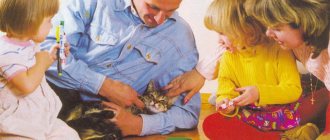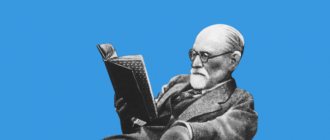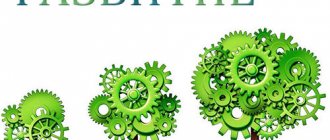To develop your own speech, to speak beautifully, interestingly and competently, you don’t have to be a philologist or linguist. Sometimes it is enough to read good fiction from time to time, which in itself instills the skills of beautiful and rich speech. However, this process is slow and must be regular, and reading a large number of books is not always possible. So if you want to give yourself an “intensive course” on improving your speech skills and not get bored, then you can turn to specialized books. If only school textbooks were as informative and varied.
“The Living and the Dead Word” – Nora Gal
The book by translator Nora Gal was written more than 40 years ago, but over the past ten years it has been republished just a dozen times. It has not become outdated at all and even gained a new breath with the advent of the Internet, because all the principles of the “living word” have become relevant again.
To become a good translator, it is not enough to know a foreign language well; you also need to have a brilliant sense of all the subtleties of your native one. Nora Gal is an excellent translator, so all her advice on enriching your own speech and getting rid of verbal garbage was priceless 40 years ago, and now, and in 40 years will also come in handy (if we don’t all start speaking Chinese).
Scientific literature
Scientific literature is not at all boring books about new research by scientists. Often, such materials, which simultaneously develop speech and vocabulary, help to better understand what is happening around.
You will definitely come across new terms, thanks to which you will learn to explain what is happening more competently and concisely. From the outside, you will look like a scientifically savvy person, which will undoubtedly add points to you as an interlocutor.
It is recommended to study the following books:
- about evolutionary biology - R. Dawkins “The Selfish Gene”, “The Greatest Show on Earth”, “The Blind Watchmaker”;
- about psychology - E. Muir “Self-confidence”, D. Ariely “The whole truth about lies”, R. Cialdini “Psychology of influence”;
- about physics and mathematics - D. Derbyshire “Simple Obsession”, M. Kaku “Physics of the Impossible”, S. Hawking “Three Books about Space and Time”;
- about political science - E. Fromm “Flight from Freedom”, N. Machiavelli “The Prince”.
Get a subscription to scientific magazines and newspapers. Scientific discoveries are a very interesting and amazing topic. Speech improves through diversity: it is necessary to read books of different styles so that the vocabulary is more extensive.
In addition, this way you will allow your brain to rest - it needs to be constantly “switched” between types of learning activities so that the effectiveness of your aspirations does not decrease.
To begin, choose the direction that interests you most. And then read the book in a direction you never understood - you will discover a lot of new things if you don't close the volume in the first pages and have patience.
“From Adam’s apple to the apple of discord” - Vadim Khrappa
Etymology studies the origin of words and expressions, and reading a regular etymological dictionary is quite boring. Vadim Khrappa kindly studied it for us and wrote many interesting notes about how the most incomprehensible and tricky set expressions and phraseological units appeared. In addition, he devotes a lot of time to telling how to use them correctly and what mistakes can be made. If you accidentally change a preposition or ending, you’ll blurt out something completely different.
“The Russian language is on the verge of a nervous breakdown” – Maxim Krongauz
Maxim Krongauz, being a linguist, closely monitors changes in the Russian language and tries to reconcile Internet language and literate speech according to all the rules. Unfortunately, his book “Albany Self-Teacher” was somewhat late. It was published when Albany slang was already a thing of history. But “The Russian Language on the Verge of a Nervous Breakdown” will remain relevant for a long time, as it talks about fundamental changes in the modern language, the most common mistakes that appear even in the media, as well as how to prevent the depletion of vocabulary in the era of simplification and speed of information delivery.
Improving diction in children
The main difficulty for children when pronouncing complex words is the rapid change of articulatory position, when it is difficult to rebuild the speech apparatus depending on the subsequent changing sound. Before you start working with your child directly on diction, you need to conduct speech gymnastics aimed at improving articulation.
Carry out exercises to develop the muscles of the speech apparatus:
- Make the sound A with your mouth wide open. The child must imagine that he is speaking into a megaphone.
- Make the sound O, stretching your lips as far as possible.
- Exercise “Smile”, when the child stretches his mouth wide, pronouncing the sound I.
- Make the sound U, extending your lips into a tube as far forward as possible.
Breathing exercises help set up your speech apparatus before reading texts for diction. It is necessary to teach the child to distribute breathing correctly:
- on a deep breath, pronounce the syllables: “house”, “bom”, “out”, retaining the air until the end of the pronunciation, distributing it to each word;
- blow out an imaginary candle, but slowly, gradually blowing out the air;
- pronounce sentences, at the beginning of the first word, take an imperceptible deep breath, distribute it until the end: “They found a pair of boots and 12 galoshes on Tamara,” “Mom loves Masha, and Masha loves mother.”
It is necessary to move on to reading texts after an articulatory warm-up. Spend at least 15 minutes on the preparatory stage. Speech therapists, when working with preschoolers and schoolchildren, advise using poetry and humorous texts so that the learning process is not a burden. While reading, it is important to monitor correct articulation, clear pronunciation of each sound, and voice placement. Diction training for children is carried out using the following texts, following the main rule: from easy to complex.
- Read the text, clearly pronouncing the sounds: sh, zh, h, shch, ts:
“The black lapwing, not bored, chirped over a cup of tea. The hedgehog has a hedgehog, the grass snake has a snake. If you want to eat rolls, don’t sit on the stove. Well done against the sheep, and against the well done the sheep itself. Sasha walked along the highway and sucked on a dryer. Two puppies are nibbling grass in the corner, cheek to cheek. The student was studying his lessons, his cheeks were covered in ink.”
- Read the text slowly at first, watching the pronunciation of individual sounds, and then speed up the pace.
The rhyme amuses the children and makes the process of working on diction interesting. You can work additionally with this text: give the child the task of reading it sadly, cheerfully, angry, laughing, restrained, calmly, loudly, quietly. It is good to train individual sounds: ch, r, k, s, asking the child to highlight them intonationally and articulatorily when reading.
Speech therapists use texts with pictures in practice for preschoolers and schoolchildren. They not only help improve diction, but also stimulate the development of memory, attention, imagination, thinking, and logic.
When working with preschoolers, the teacher (parent) reads the text, the child looks at the picture, continues the sentence, pronounces intonationally and clearly all the necessary imitative words, exercises in the process of reading a fairy tale, and repeats after the adult. The student can independently read a fairy tale and complete assignments. An adult only monitors the clarity and correctness of speech.
“Alive as life” – Korney Chukovsky
The Soviet writer Korney Ivanovich Chukovsky wrote not only famous poetic fairy tales for children, but also “popular non-fiction,” although he himself would have condemned this term. “Alive as life” appeared at a time when office (the language of bureaucratic conversations and papers) began to dominate in the Russian language, and foreign words began to actively replace Russian analogues. Now the situation with foreign words is exactly the same, but clerical and memorized phrases are still taught at school. So Chukovsky’s book, even at an older age, will help you get rid of bad language habits.
Books about the psychology of communication
In this selection you will certainly find books that are very important to you. They are written about the main human skill - communication. Communication psychology is a field of knowledge that is constantly evolving. Read! It will be very interesting!
No. 1. “How to Win Friends and Influence People” - Dale Carnegie
(Popular Psychology)
About the author: The author is not only a writer, he is an excellent teacher from America, as well as a speaker. Many years ago, he decided to found self-improvement courses.
About the book:
The book is written in simple, but nevertheless very understandable language. It will be useful not only for psychologists, but also for ordinary people who want to find a common language with colleagues, as well as loved ones if they have become distant due to quarrels.
This is a bestseller. Just think! Dale Carnegie has sold 15,000,000 books. This work of his has been translated into 15 languages of the world. It's amazing!
Quote:
"Don't criticize, refrain from judging."
Buy at Litres for 252 rubles
No. 2. “Mastery of communication. How to get along with anyone - Paul McGee
(Popular Psychology)
About the author: Paul McGee is an excellent author, has written about 10 books, and has been a leading lecturer in the UK. He also regularly speaks on topics on personal development, gaining confidence, loves the topic of motivation, talks a lot about the negative impact of stress and how to overcome it.
About the book:
A high level of knowledge, developed intelligence, and professionalism - these factors are not enough to achieve success.
You need to look at life soberly and be able to convey your ideas to other people, and also try not to be afraid of difficult and difficult conversations, conversations, and negotiations.
The book focuses on the mistakes we make when communicating with other people.
Quote:
“Life is not determined by events, but by your reaction to them.”
No. 3. “How to Overcome Shyness” - Philip Zimbardo
(Popular Psychology)
About the author: Philip Zimbardo, in addition to writing books, is also engaged in social psychology, and is also an excellent speaker.
About the book:
The author wrote this wonderful book a relatively long time ago, but it is still popular. In Philip's books, instead of some abstract thoughts, you can find exclusively statistics and scientific and proven approaches to problems.
The author considers shyness to be an individual response to emotions. The author suggests certain exercises to finally overcome shyness.
Quote:
“Shyness is an obstacle to rapprochement.”
Buy at Litres for 339 rubles
No. 4. "How to Talk to Anyone" by Mark Rhodes
(Psychology of communication)
About the author: The author is an entrepreneur and has written a lot of business literature. This is an excellent mentor and business coach. He works and collaborates with companies all over the world.
About the book:
If tension arises during a conversation, do not be afraid, this is quite natural. The most important thing is to try to overcome it. This is exactly what the author decided to write a book about.
How to get rid of fears and barriers, start talking, become confident and get rid of the fear that they won’t want to talk to you, they will drive you away and reject you.
Quote:
“Talk to people about themselves, and they will listen to you for hours.”
No. 5. “We turn on the charm using the methods of the secret services” - Jack Schafer
(Popular Psychology)
About the author: Jack Schafer is a professor of psychology. He worked as an FBI special agent for a long time. In some operations that were classified, he used charm.
About the book:
The author claims that there is a so-called golden rule that will allow you to win over absolutely anyone.
You will certainly learn to recognize lies and see various signals in the manners of others.
Quote:
“Remember that knowledge without practical application is dead knowledge.”
Buy at Litres for 399 rubles
“Russian with a dictionary” – Irina Levontina
Irina Levontina wrote her observations about changes in the Russian language for several years in the form of separate articles, and then published them in a separate collection. The book immediately became a bibliographic rarity and only the reprint can be purchased at an affordable price. This alone can speak about the quality and necessity of such notes. Irina, with humor and even some joy, welcomes the fact that language does not stand still, but lives and changes. Unlike linguists of the old school, who are sad and claim every year that the language is becoming poorer, Irina Levontina is convinced of the opposite. The main thing is to understand how to use all these new words and phrases, she argues, then the speech will remain lively and rich.
Improving diction in teenagers
Teenagers also need to start working on developing diction after articulation and breathing exercises. Exercises should be aimed at developing the speech apparatus, pronouncing individual sounds, complex words, and sentences. While working, you need to simultaneously monitor your breathing: at the beginning of a sentence, take an imperceptible breath, distribute it over the remaining time until the end of the speech. On the next sentence, repeat the procedure again.
The following suggestions and exercises are suitable for warming up a teenager. These can be tongue twisters, short poems, pure tongue twisters.
Difficult texts for diction must be taken after successfully pronouncing difficult tongue twisters. When reading a text, it is important to maintain clear pronunciation, train correct articulation, gradually increasing the tempo.
When working with teenagers, it is also important to have interesting and unusual material. Due to their age, children may approach activities irresponsibly. Properly selected exercises will distract you and set you in a positive mood. A cheerful Chinese tongue twister works well in this case.
Once upon a time there lived three Chinese - Yak, Yak-Tsidrak, Yak-Tsidrak-Tsidron-Tsidroni, and three more Chinese women - Tsypa, Tsypa-Dripa, Tsypa-Dripa-Lampomponi. Yak got married to Tsypa, Yak-Tsidrak to Tsypa-Dripa, Yak-Tsidrak-Tsidron-Tsidroni to Tsypa-Dripa-Lampomponi... So they had children: Yak and Tsypa - Shah, Yak-Tsidrak and Tsypa-Drypa - Shah -Sharah, at Yak-Tsidrak-Tsidroni with Tsypo-Drypa-Lampoponi - Shah-Sharah-Sharoni.
“How to Talk to Anyone, Anytime, Anywhere” - Larry King
This book is not about the Russian language and not about speech as a linguistic phenomenon. And not even about speech technique or oratory. This is the unique experience of a person who wants to teach us to speak, and not be silent, not to be shy and not to be shy - at the same time to speak beautifully, intelligently and well. For the Russian reader, the examples from the book are somewhat Americanized, but much can be taken into account and used in everyday communication.
“Do we know Russian?” – Maria Aksenova
In fact, Maria Aksenova has a whole series of three books entitled “Do We Know Russian?”, but if you like the first one, then you’ll pay attention to the other two. The author takes a thread from the world and writes about all the interesting things from linguistics, philology, spelling and even journalism that are associated with the correct or incorrect use of language norms. As the name suggests, the main emphasis is on mistakes, and mistakes that are most often funny or unexpected. The only negative that is often attributed to the author is the abundance of exclamation marks. What can you do, she reacts very emotionally to mistakes in her beloved native language.
Fiction
Most serious works of art were studied in school. This was not done in vain: while reading the classics, a person gets acquainted with the basic concepts of morality, the basic principles of life, history, culture, and expands his horizons with various terms.
Most modern literature has become formulaic and primitive - in classical fiction you will find much more useful thoughts and expressions to enrich your language. Your speech will sound more refined and correct. It is not for nothing that it is believed that the best books that develop speech are classic books.
Pay attention to the following books that develop vocabulary:
- F. M. Dostoevsky “Crime and Punishment”, “Idiot”;
- M. A. Bulgakov “The Master and Margarita”, “Heart of a Dog”, “Notes of a Young Doctor”;
- I. S. Turgenev “Fathers and Sons”, “Notes of a Hunter”, “Noble Nest”;
- L. N. Tolstoy “War and Peace”, “Anna Karenina”, “Sevastopol Stories”;
- E. M. Remarque “Three Comrades”;
- D. London "Martin Eden".
The last book, by the way, is partly autobiographical. It is useful to read such books - you will be able to feel the author’s era from the inside, appreciate the historical and cultural situation of that time and better understand other works of this writer.
"The Oddities of Our Language" - Nigel Brown
The book is called “Oddities of Our Language” and was written by an English-speaking author, but it is not about English at all. However, it’s not about Russian either. Nigel Brown explores the appearance of borrowed words in other languages, and they almost always coincide in both Russian and English. So in “Weird Things of Our Language” we act as citizens of the world, and at the same time we learn where a huge number of words come from and whether they have changed their meaning over time.
Books on how to develop public speaking skills
How to develop speaking skills? Do you need to practice more in front of the mirror or can you improve your diction? Believe me, it will be quite difficult to cope with this task on your own, but if you have a selection of books, it will be much easier.
No. 11. “Black rhetoric. The power and magic of words" - Karsten Bredemeier
(Self-development)
About the author: The author is a fairly well-known specialist in the field of business consulting. He is also considered one of the best communication trainers in Europe.
About the book:
The book teaches manipulation by all methods and rhetorical means. The book explains how to properly communicate with an interlocutor, teaches not just communication, but resourcefulness, and not succumbing to various provocations.
It will be useful for those who want to learn the art of dialogue, as well as public speaking.
Quote:
“Irony is the Trojan horse of verbal acrobatics, self-irony is a minefield for those who use it.”
Buy at Litres for 339 rubles
No. 12. “I speak and they listen to me. Lessons in practical rhetoric" - Nina Zvereva
(Self-development)
About the author: The author is not only a writer, but also a journalist, a member of the Academy of Russian Television. She also works as a trainer and has written a huge number of books.
About the book:
An excellent practical guide for those who need to give a speech, and is suitable for any occasion. Even a sophisticated reader who is familiar with similar books will like it.
Behind all the recommendations is an author with his own experience and feelings. The book is written easily and expressively. Each line contains a lot of useful information. The book will not only help you perform, but will also remain in your memory.
Quote:
“A pause is a great aid in managing the room and maintaining discipline.”
Buy on Litres for 299 rubles
No. 13. "Revelations of a Speaker" - Scott Berkun
(Self-development)
About the Author: Scott Berkun is an accomplished speaker and writer. But little is known about him, except that she writes books.
About the book:
In this very practical book, the author decided to collect a large number of tips, as well as life hacks, which will certainly allow you to prepare well for a performance of any scale and level.
The author will also tell you how to cope with fear of an audience, and what nuances you should consider when preparing for your speech.
Quote:
“If the topic doesn’t inspire and energize you, how will it energize and energize the audience?”
Buy at Litres for 449 rubles
No. 14. “Ancient Oratory” - Andrey Kozarzhevsky
(Self-development)
About the author: Andrey Kozarzhevsky is an excellent specialist in the field of classical philology.
About the book:
If we talk about the ancient Greeks, they were always distinguished by the fact that they were very eloquent. In ancient Greece, philosophers and politicians could master words no worse than tragedians and poets.
The author dedicated this material to the speakers of the classical era. The book examines the works and speeches of Cicero, Aristotle, Demosthenes, and Plato.
Quote:
“Speech is composed of three parts: the speaker, the subject about which he is speaking, and the person to whom the speaker is addressing; the audience represents the final goal of the speech.”
No. 15. “Speak and Conquer” - Victoria Borisova
(Self-development)
About the author: The author is a philosopher and psychologist by training. At one time she worked as a business coach.
About the book:
Hundreds of books were written at one time about the art of oratory, as well as proper communication. But the author assures that in our century the old principles no longer work. The main problem, according to the author, is behavior “like a robot.”
In this publication you will learn the secrets of communication. The book pays special attention to how sincere the speaker is. Communication between buyer and seller, subordinate and boss, children and parents must certainly be as natural as possible.
Quote:
“Success is moving from one failure to another with increasing enthusiasm.”
No. 16. "Oratory. Pretend to be an expert." - Chris Steward
(Developmental Psychology)
About the author: The author is a writer, psychologist and blogger.
About the book:
Surely you have encountered the need to make a speech in public. And a book on public speaking can come in handy while studying, at a birthday party or at a wedding.
The author talks about how to properly structure a speech and gives some tips on the correct use of quotes. You will also find in the book tips on memorizing a prepared speech.
Quote:
“Smart speakers always end on a dramatic note.”
No. 17. “The psychology of persuasion. 50 Proven Ways to Be Persuasive - Robert Cialdini
(Self-development)
About the author: The author is a popular psychologist from America who became famous thanks to his books.
About the book:
The book was written in a lively and easy language, as well as in a fairly convenient question-and-answer form. You will receive a lot of theory as well as actionable advice.
The authors decided to dedicate the book to the psychology of communication. Thanks to this publication, you will not only be able to learn all the techniques, but also understand the mechanisms of communication themselves.
Quote:
“People are often confused about the various reasons that led them to choose a particular course of action.”











